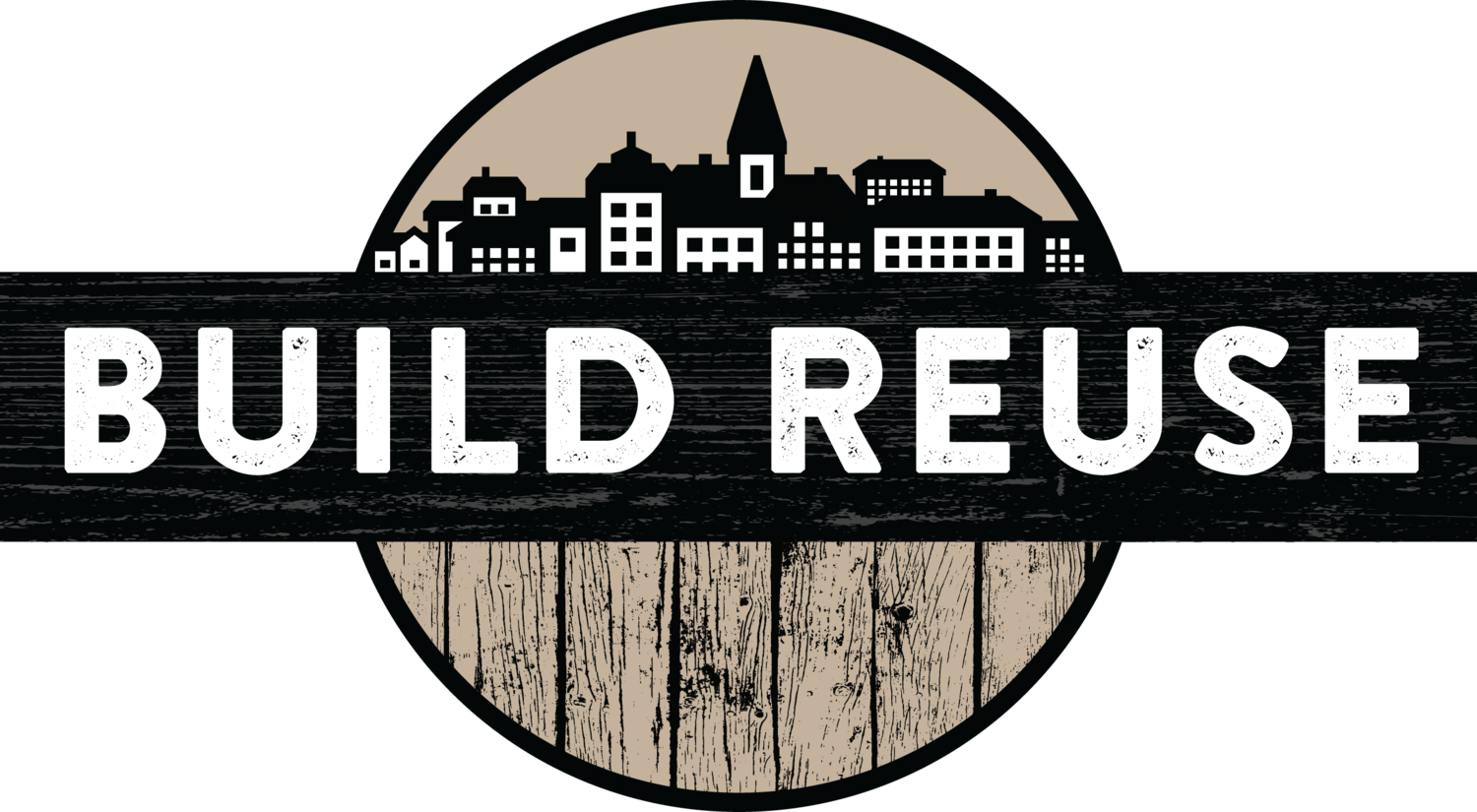
About Materials Appraisals
Build Reuse’s Best Practices for Working with Appraisers
One important tool in the reuse tool box is the federal (and state tax if applicable) tax deduction for donations of used building materials to nonprofits. Per the IRS, generally if the claimed deduction for an item or group of similar items of donated property is more than $5,000, a qualified appraisal signed and dated by a qualified appraiser must be obtained and you must attach the IRS Form 8283 to your tax return.
Please see the IRS’ website for more information and instructions.
The process works for the donor when the IRS rules are followed:
The parties in this activity include: the donor (building owner), the nonprofit (recipient of building material donation), the deconstruction contractor (sometimes the contractor is also the nonprofit as well), and the material appraiser, commonly referred to as a “deconstruction” or “reuse” appraiser, (a personal property appraiser qualified in building material valuation). All of these parties are responsible for protecting the integrity, transparency, and independence of the process.
The donor: the driver of the process. They choose if it makes sense to deconstruct, who will perform the deconstruction, what qualified 501(c)(3) nonprofit will accept the building materials, and engage the services of a qualified appraiser when the value is expected to exceed $5,000.
The nonprofit: a qualified 501(c)(3) organization who receives reusable building materials. Find tax exempt organizations here.
The nonprofit has many responsibilities, one of which is to identify what materials they can accept for donation. This may be achieved by a site visit or by reviewing photographs and information. If the nonprofit is providing the deconstruction services, the deconstruction bid must be independent of the value of the donation. To keep the “independent” in “independent appraisal” means the deconstruction bid cannot be influenced by the anticipated or estimated appraised value. Another important responsibility of the nonprofit is to provide documentation to support the appraisal and tax write off. This includes an inventory of donated materials and a receipt or thank you letter containing the IRS required language. Link to the IRS’ instructions here:
Substantiating Charitable Contributions
Charitable Contributions: Substantiation and Disclosure Documents [PDF]
The inventory needs to reflect what was actually received by the nonprofit and should include:
item #
item description
size/dimensions
quantity
indication of condition
Several of these details can be captured by a photo of the item. The appraisal must reflect the donee (nonprofit) and donor approved inventory. The more detailed the inventory list, the better position the donor will be in the case of an audit.
The deconstruction contractor: this needs to be an experienced contractor in deconstruction as the reuse value as a donation is dependent on the condition of the delivered material. There are times the nonprofit receiving the donation and the deconstruction contractor are the same. The National Registry of Deconstruction Trainers can be referenced for areas of knowledge deconstruction contractors may possess.
The appraiser: a personal property appraiser experienced in valuing reusable building materials, commonly referred to as a deconstruction or reuse appraiser, and meets the IRS’ definition of qualified appraiser who performs qualified appraisals. The IRS’ definition of qualified appraiser and qualified appraisals can be found here.
Build Reuse suggests the following guide can be printed and given to donors at the beginning of the process:
Nonprofits ensure the donor is aware of their right to take a noncash charitable contribution deduction and appraisal requirements – self appraisal (up to $5000 contribution) or professional appraisal (contribution deductions greater than $5000). The nonprofit should recommend they seek the advice of their tax professional and/or consult with a professional appraiser. It’s important to remember, many donors may not be familiar with making large non- cash contributions and the nonprofit should make sure they understand their rights and responsibilities related to any tax benefits for their generous donation to your nonprofit.
Appraisers can usually provide “preliminary estimates of fair market value for potential donations” based on the scope of donation identified as acceptable by the nonprofit. Preliminary estimates are meant to assist the donor in determining financial feasibility of deconstruction as opposed to traditional demolition. Preliminary estimates are based upon many assumptions and are not guaranteed appraised values. The quality of the initial information provided to the appraiser and the skill of the deconstruction contractor can greatly increase the reliability of the preliminary estimate.
The nonprofit does not determine value of donations nor should there be any relationship between anticipated donation value and nonprofit services, such as deconstruction fees, or request for cash contributions.
The deconstruction contractor, whether part of the nonprofit or not, and the appraiser must maintain independence from one another. Deconstruction and appraisal fees should never be tied to anticipated value.
It is never advisable for an appraiser to share potential donation value or final appraised values with anyone other than the client or their assigned representative/s.
Per IRS rules, nonprofits are not permitted to provide any donation value, either communicated verbally or documented on a receipt, to the donor.
A qualified appraisal for IRS tax purposes must use the treasury’s definition of fair market value (FMV). Information on fair market value information can be found in IRS Publication 561. FMV is defined as:
Fair market value (FMV) is the price that property would sell for on the open market. It is the price that would be agreed on between a willing buyer and a willing seller, with neither being required to act, and both having reasonable knowledge of the relevant facts. If you put a restriction on the use of property you donate, the FMV must reflect that restriction.
Nonprofits should always recommend every donor to consult their tax professional to make certain the donation is tax deductible even if we feel certain it is!
A complete inventory encompasses the building components the nonprofit receives at its physical location or takes possession/title of and not what it may have inventoried before deconstruction or stated an intention to accept as a donation. The “complete inventory” is material to which the appraiser assigns the value that will be used by the donor on their taxes.
For more questions about appraisals, we recommend consulting with a qualified appraiser.
This statement has been reviewed by qualified appraisers, deconstruction contractors, and nonprofits.
